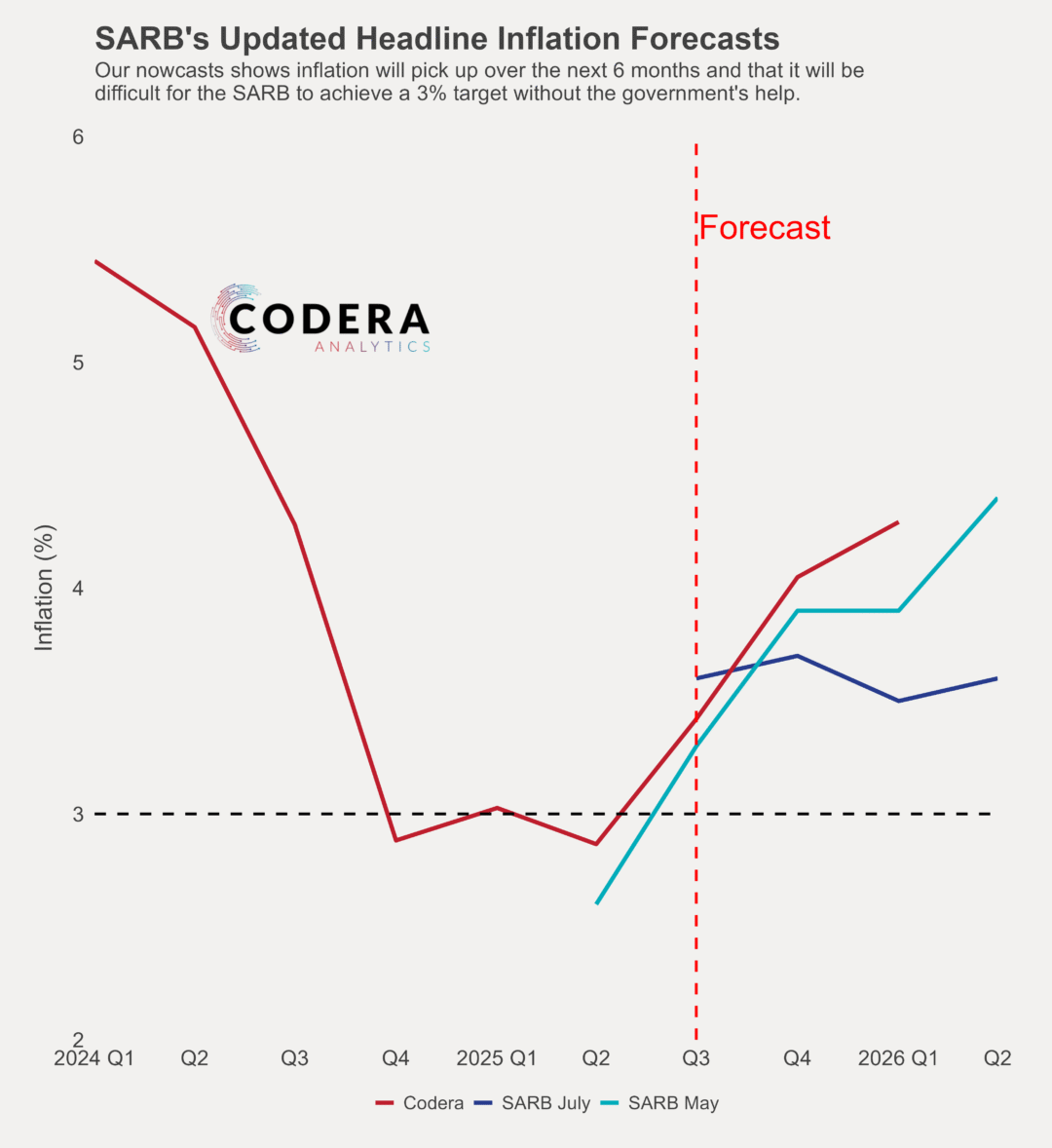We estimate that sustainably reducing inflation will be harder and more costly than the SARB assumes. In the absence of complementary government policies and buy-in from organs of the state and unions, the transition costs to a new target will be much higher than SARB asserts. This would keep borrowing costs high for households and firms and potentially undermine the credibility of the SARB.
Analysts will closely track how inflation expectations, price and wage setting dynamics and fiscal policy evolve to assess whether SARB’s assumptions are reasonable and therefore the adjustment path it has laid out is likely to bear out. For a summary of our paper on the inflation targeting debate see here.

